SWI swissinfo.ch annual report 2022
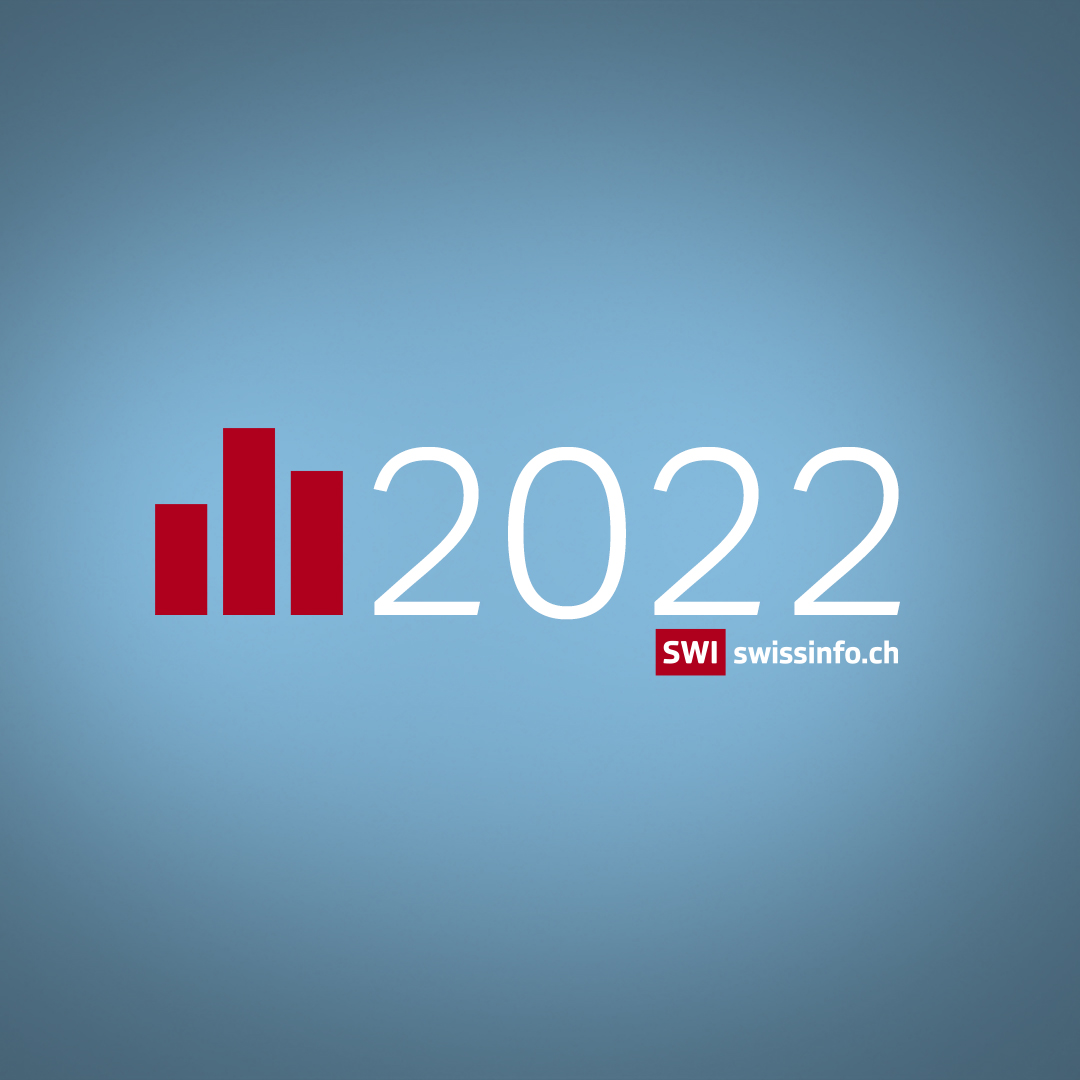
Dear friends of SWI swissinfo.ch, Swiss Abroad and people interested in Switzerland,
Once again we look back at an eventful and educational year. Despite the ups and downs of 2022, Switzerland, as so often, managed to get through the local and global crises relatively unscathed.
Last year more than 62 million people visited our websites, which shows that in the current global situation demand remains high for reliable information and background reports from Switzerland.
With this annual report we take you on a journey through a selection of stories and reports that gave you something to talk about inside and outside Switzerland. There are also a few glimpses behind the scenes that we hope will surprise you.
Annual report: a video review by our SWI swissinfo.ch team

More
Thank You!
Sudden end of Covid-19 restrictions
The Swiss government’s decision to lift almost all Covid-19 restrictions in February caused a stir around the globe. We could feel this in the international feedback we received on our coverage.

More
Switzerland lifts most Covid-19 restrictions
The war in Ukraine brought some changes to SWI swissinfo.ch
When Russia invaded Ukraine on February 24, our articles published in Russian saw an unprecedented number of hits. At the beginning of the war most of these came from Russia and Ukraine, but once Ukrainians started to leave their country, the number of clicks from Switzerland, Poland, Germany, Kazakhstan and France also increased.
SWI swissinfo.ch’s Russian stories reached a weekly average of 50,000-60,000 visits. However, just after Russia started its aggression against Ukraine this number was three times as high, sometimes reaching 180,000 visits a week. In 2022 roughly 3.6 million of the 62.4 million visits to our websites were for our stories in Russian.
As our reporters adhere to journalistic principles – first and foremost to keep our reporting balanced – SWI swissinfo.ch ran the risk of getting blocked in Russia. As we wanted to stay in touch with our Russian readers and make our independent reports accessible to them, we tapped into new social media channels. Apart from our website, SWI swissinfo.ch reached roughly 200,000 Russian-speakers via Facebook, Instagram, Twitter, YouTube, Telegram and VKontakte.
The war has put a lot of professional and personal pressure on our editorial staff, especially on our Russian colleagues who increasingly suffered personal attacks. SWI swissinfo.ch was even forced to suspend the open comments section overnight a few times as it was no longer possible to keep an objective exchange.
SWI swissinfo.ch reports in Ukrainian
In Russia as well as in Ukraine, press freedom has been increasingly under attack, and it required some time to provide free and independent reporting from abroad. In consultation with the federal communication ministry, SWI swissinfo.ch saw the necessity and opportunity to offer some of its Russian content in Ukrainian. Since the beginning of May SWI swissinfo.ch has provided information in Ukrainian via its Russian, English, German, French and Italian websites on the basis of a temporary service agreement with the government. The websites receive around 870 visits a week while more than 1,300 people have subscribed to our newsletter.
Swiss affairs in context of the war in Ukraine
Shortly after Russia invaded Ukraine the concept of Swiss neutrality was questioned in Switzerland and far beyond its borders. Apart from our ongoing editorial support for Switzerland’s decisions on sanctions, we had to explain in various languages what Swiss neutrality really means.
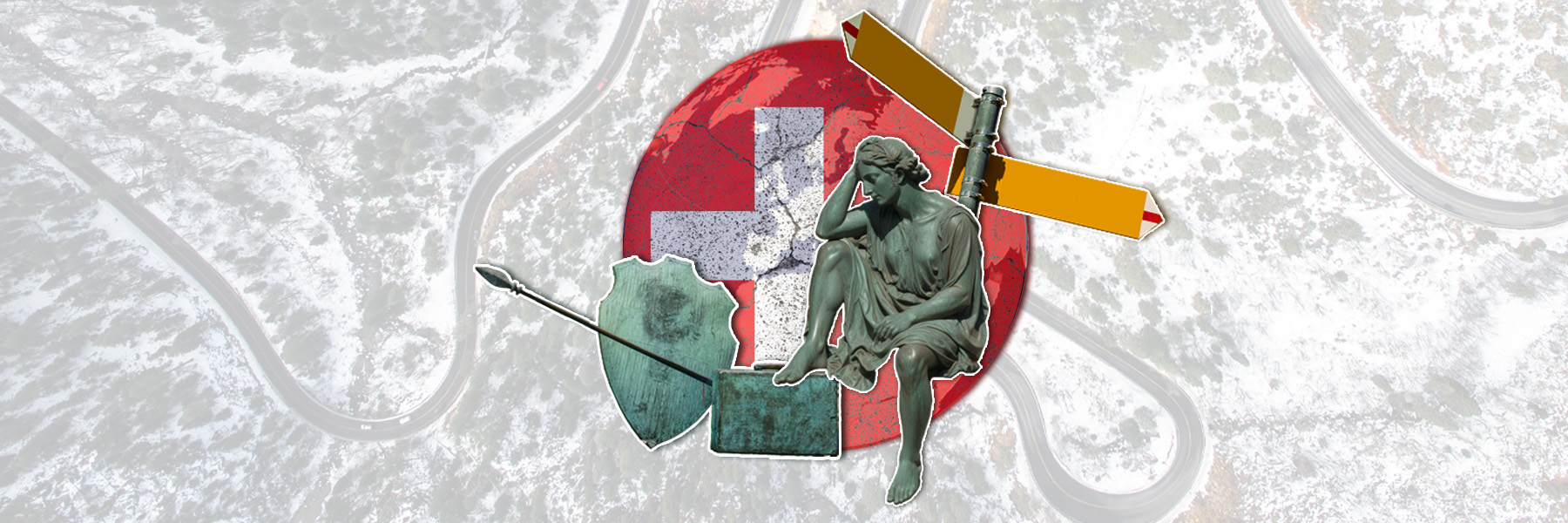
More
What does the future hold for Swiss neutrality?
In an effort to bring some light into dark times and put a smile on our readers’ faces, we produced a satirical video on “Swiss Neutrality” – a concept which has been a laughing stock in other countries for a while. In our video Swiss comedian Patrick Karpiczenko explains why Russian oligarchs receive so-called golden visas from Switzerland and how they manage to avoid sanctions.

More
Switzerland says sorry! Oligarchs’ paradise
Did you know that exactly 200 years ago Swiss citizens founded a colony in Ukraine? Unfortunately, 2022 left us little reason to celebrate this anniversary.
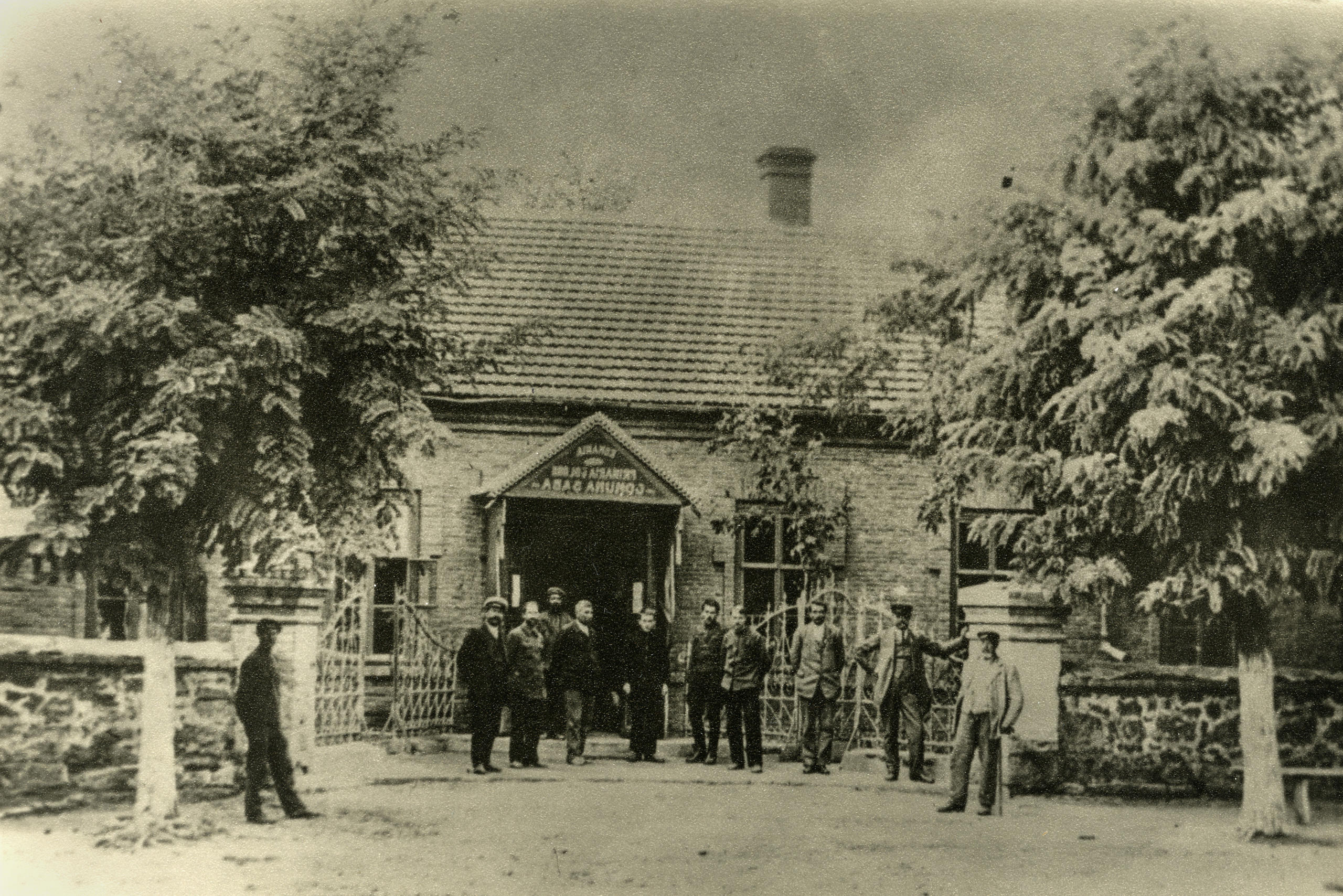
More
War in Ukraine reaches former Swiss colony of Shabo
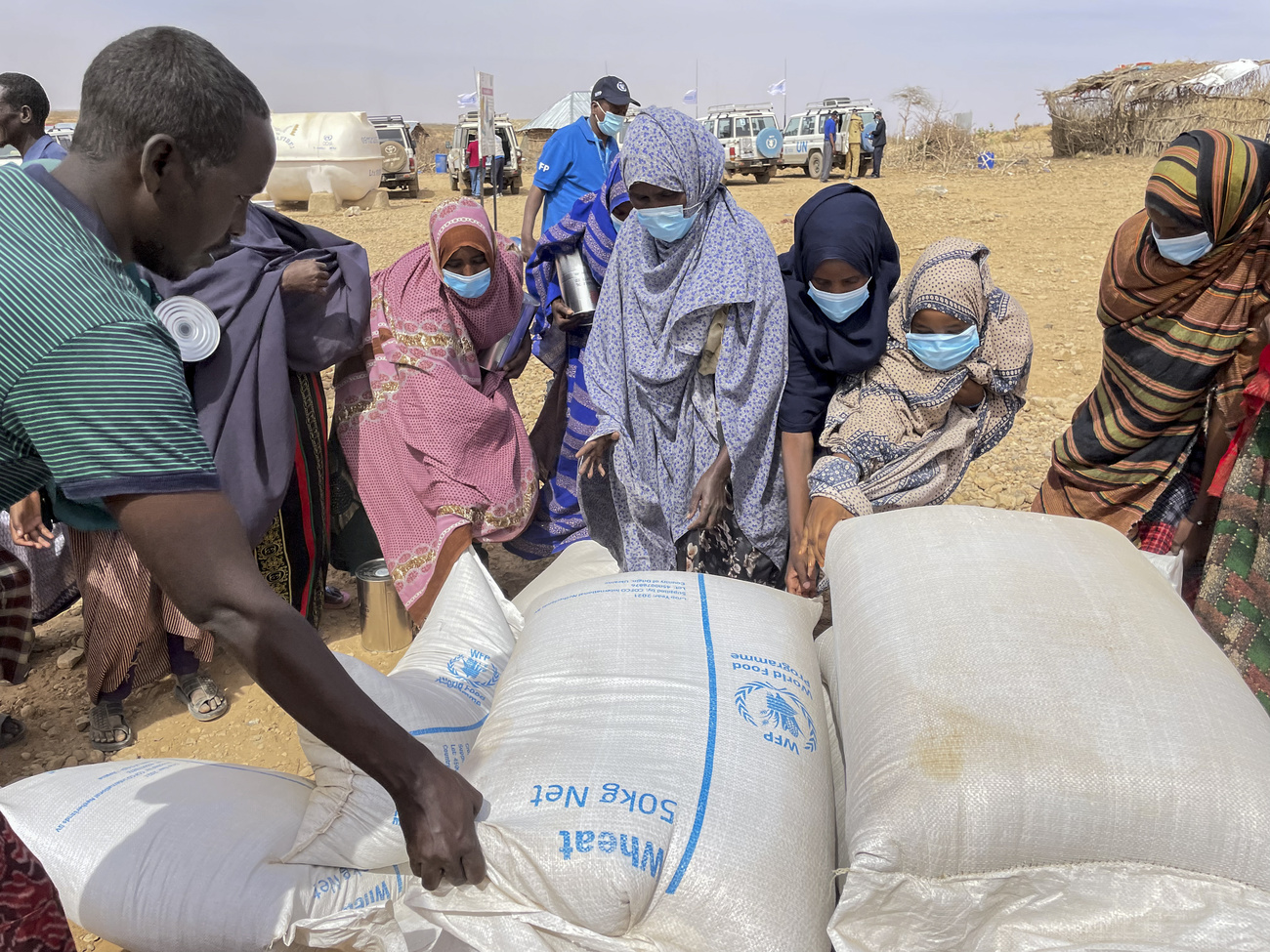
More
How the war in Ukraine is fuelling the next global food crisis
To subscribe to our newsletter with Ukraine-related issues
International Geneva
Whether it’s pandemics or wars, International Geneva plays an important role in global crises. It is the city where many international organisations have their headquarters and where countless negotiations take place, classifications are made and decisions on the world’s future are taken. SWI swissinfo.ch published an eight-part series on Switzerland’s candidacy for a seat on the UN Security Council.

More
What would Switzerland gain from a seat on the UN Security Council?
Speaking of security: over 800 people volunteered to be locked up in a Zurich prison to test what it is like to be an inmate. SWI swissinfo.ch reporter May Elmahdi-Lichtsteiner was one of the lucky inmates selected for the trial.
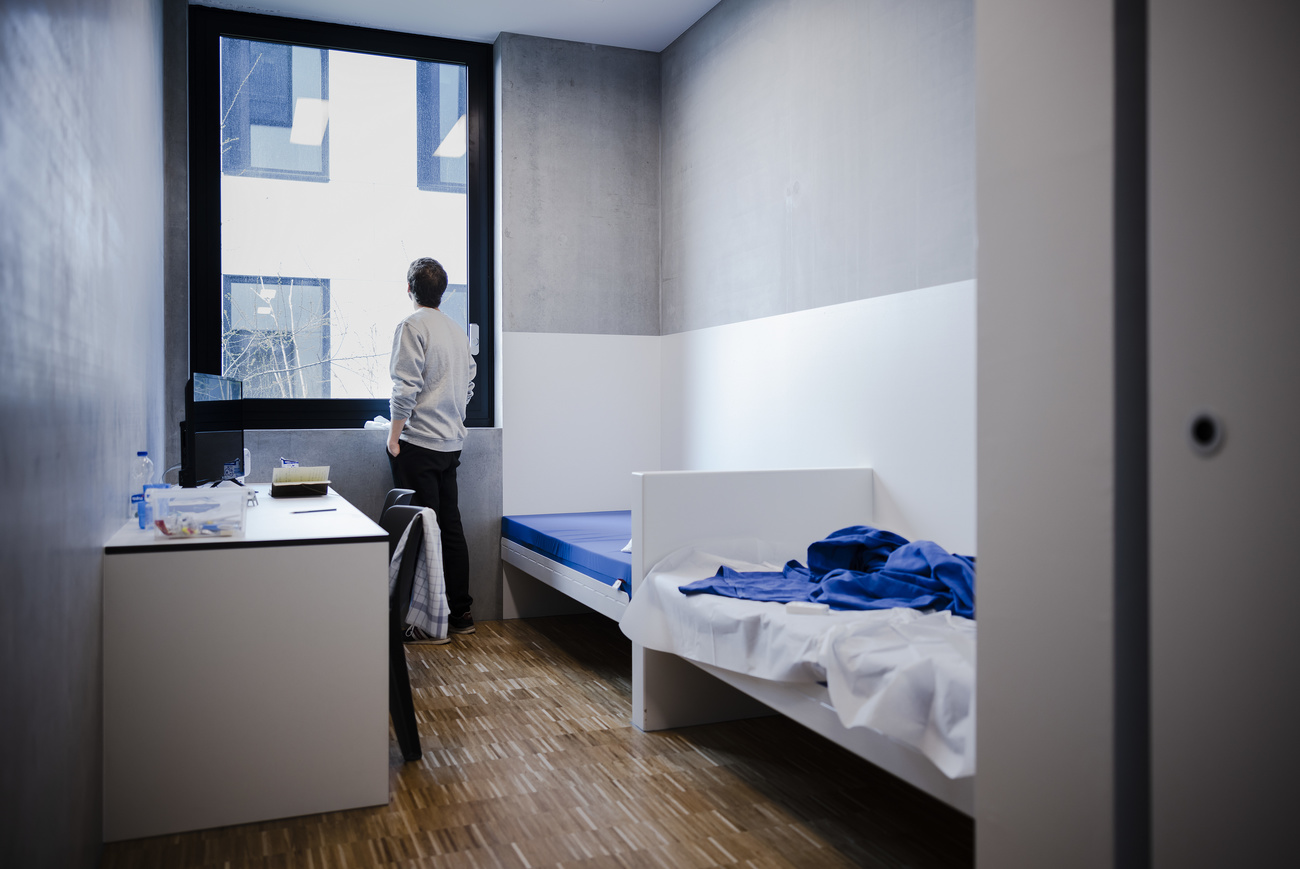
More
Life inside: testing a new Swiss prison
As SWI swissinfo.ch has one of the most diverse editorial teams in Switzerland, interest in our skills as well as our perspectives and ways of working grew both at home and abroad over the last year. One of our core skills is formulating and contextualising news in a way that is geared to language and culture. Our goal is to provide the general public with enough relevant facts and stories to help them form their own opinions. For this, our journalists answered many questions on political and social issues as well as on their personal feelings by conducting interviews, having discussions and producing reports.
SWI swissinfo.ch in other media
A rendez-vous with five of our journalists (German)
swissinfo in Russian: media on a tightropeExternal link (Le Temps, French, with paywall)
The Russian version of swissinfo is very popularExternal link (RSI, Italian)
Invasion of Ukraine: a Swiss perspectiveExternal link (interview with SWI’s Marcela Aguila, Radio Canada, Spanish)
The war revived fear of the ‘Russian bear’External link (interview with SWI’s Kamel Dhif, Radio Canada, Arabic)
swissinfo and coverage of the war in Russian from BernExternal link (RTS, French)
SWI swissinfo.ch is certified by the Journalism Trust Initiative (JTI)
One of the highlights of 2022 was SWI swissinfo.ch’s certification with the Journalism Trust Initiative Label, which boosted our motivation further. The label initiated by Reporters Without Borders aims to make quality journalism clearly distinguishable for humans and algorithms.

More
SWI swissinfo.ch certified by the Journalism Trust Initiative
New editor-in-chief and new head of department
In July Mark Livingston became the new editor-in-chief at SWI swissinfo.ch. In this post, formerly held by SWI swissinfo.ch director Larissa M. Bieler, he is responsible for editorial quality and the implementation of our journalistic guidelines. Together with new Head of Audience Veronica DeVore, who was recently voted onto the editorial board, he is also in charge of SWI swissinfo.ch’s strategic development.
Swiss Abroad Congress
For the first time since the start of the Covid-19 pandemic the Swiss Abroad Congress resumed in person, taking place in Lugano in August. We travelled to Ticino and spoke to some of the 140 delegates on the Swiss Abroad Council as well as Foreign Minister Ignazio Cassis. Issues on the agenda included e-voting, collaboration with the foreign ministry, health insurance for the Swiss Abroad as well as Swiss-EU relations, which are a huge concern for the Swiss diaspora.
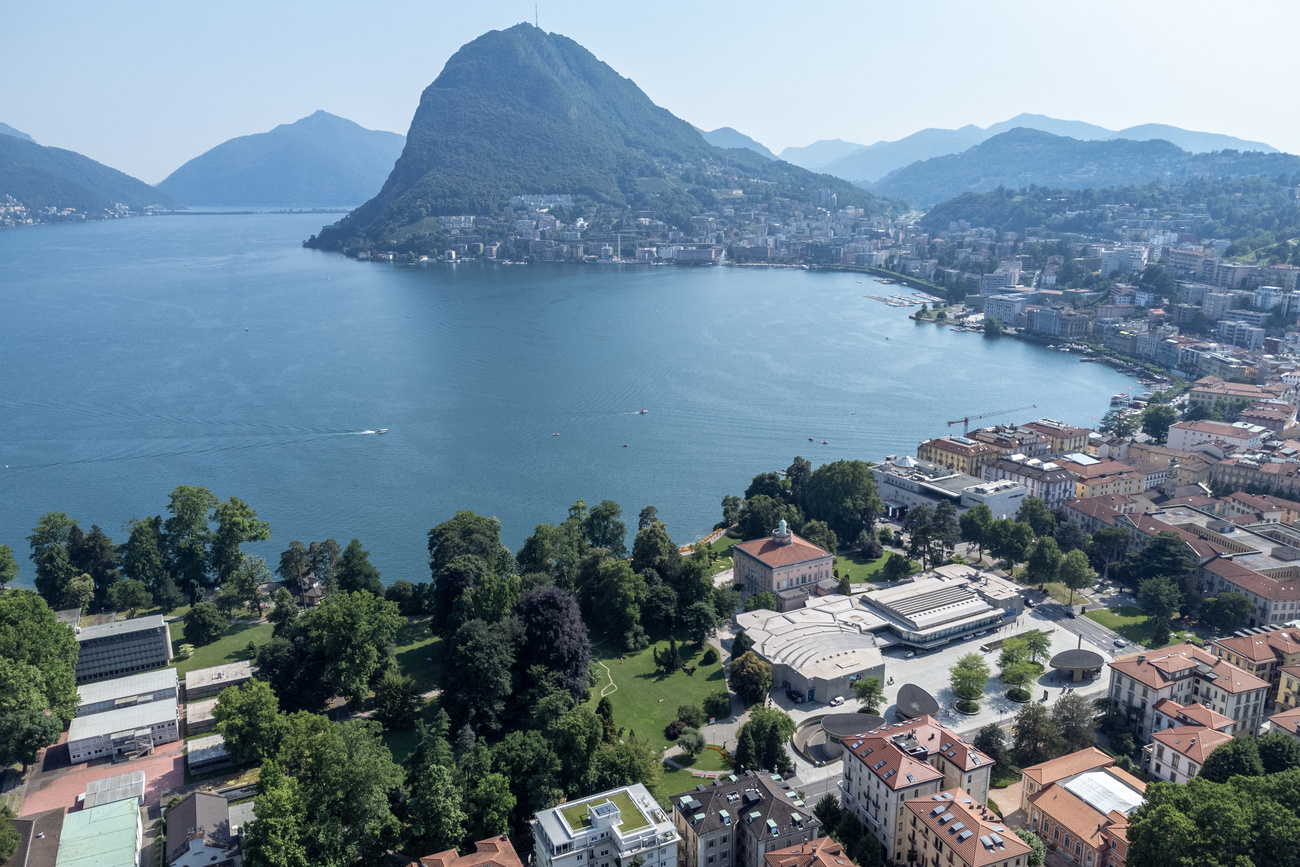
More
Swiss Abroad Congress resumes after pandemic pause
Asian shellfish conquers Switzerland
Switzerland may be landlocked, but that doesn’t stop invasive clams, such as the Corbicula fluminea, from entering its rivers and lakes and threatening its ecosystems. Susan Misicka took the plunge and found out how this mollusc affects Swiss waters and whether the immigrated bivalves are fit for human consumption.
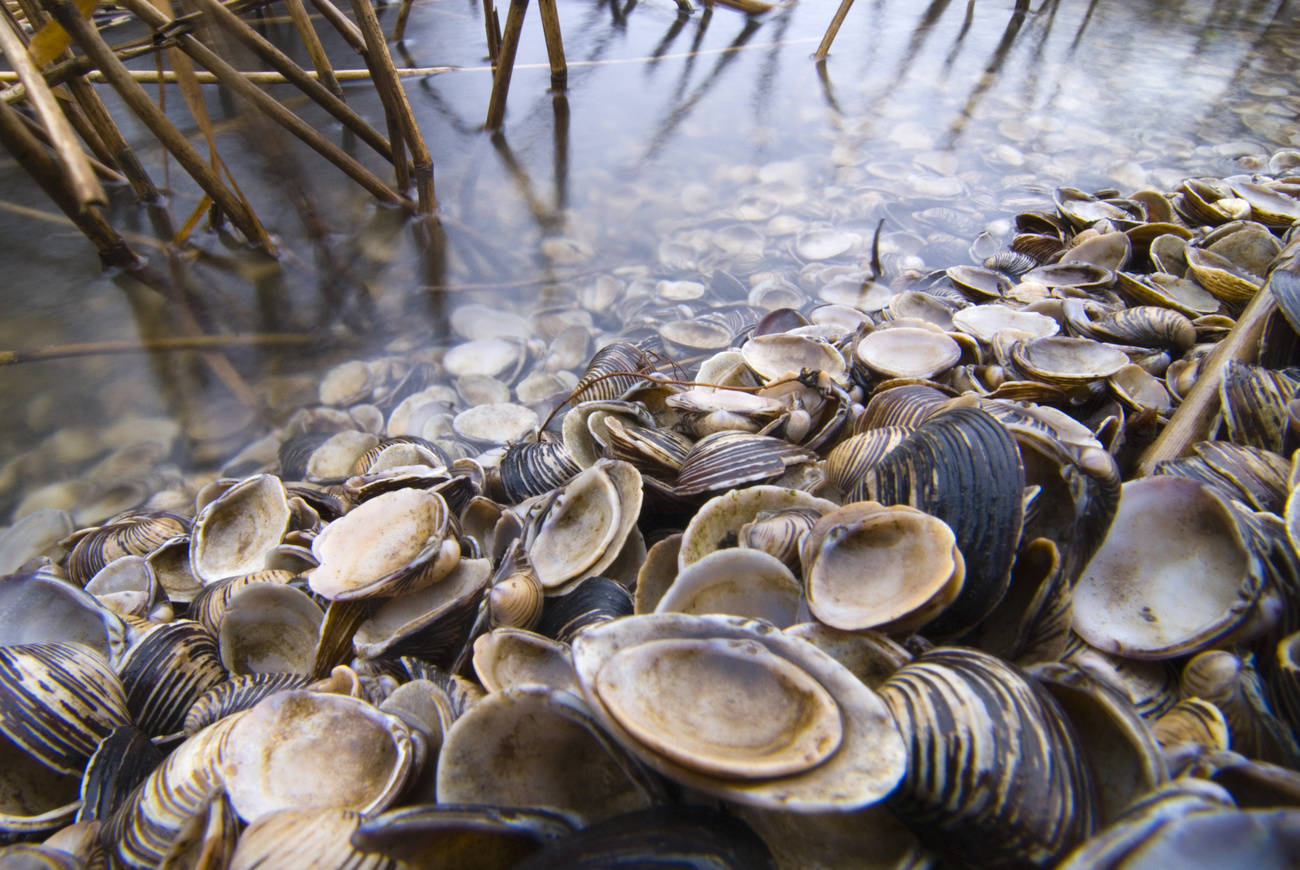
More
Lake invaders: alien shellfish trouble Swiss waters

More
Happy as an invasive clam?
How Switzerland supports biogas production in Benin and helps breast cancer patients in Kenya
Whether Swiss development cooperation makes a difference depends on many factors. Céline Stegmüller visited two biogas plants in Benin that were built with Swiss funding. One of them still produces biogas, the other one lies idle.

More
Producing biogas in Benin is not always easy
Our report about Lucia Syokau Muli from Kenya shows how Swiss prices for cancer drugs can have an impact on individuals.

More
Paying to survive – the deadly toll of breast cancer in Kenya
From cows to bank notes
The story of an unknown but very successful Swiss company caused an international stir in 2022. Sicpa’s opaque business dealings and its international connections were good enough reasons for SWI swissinfo.ch to run a comprehensive multimedia story in collaboration with Gotham City Research. The story reads like an economic crime thriller and may make you wonder where the ink used for printing the banknotes in your wallet actually comes from.
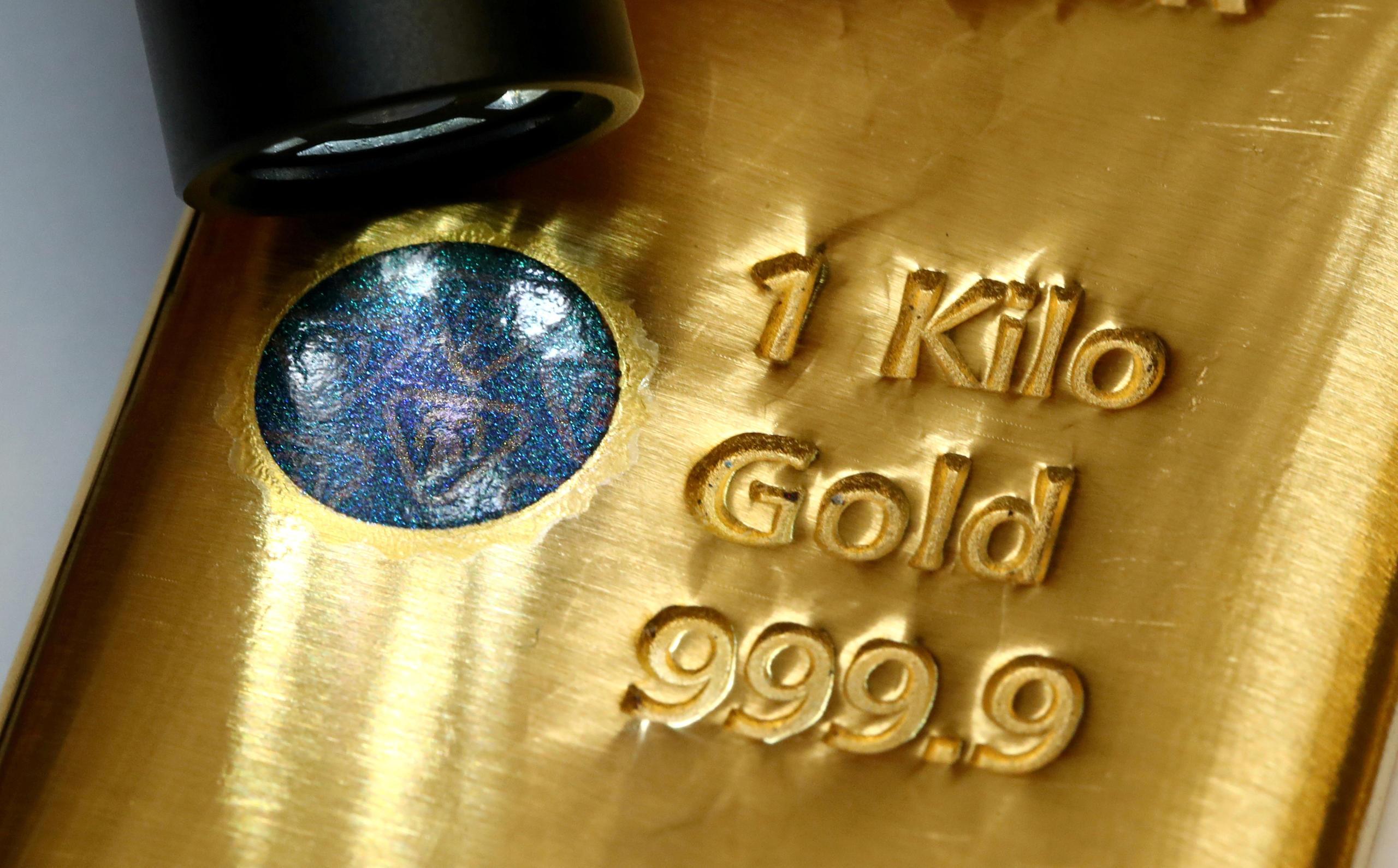
More
Sicpa – the hidden cost of selling trust
External linkSwiss films made for an international audience
“Swiss made” is a selection of Swiss documentaries that are available to an international audience on the Play Suisse streaming platform. Films that were previously shown only in Switzerland are streamed with English subtitles and can be watched around the globe.
The new films on offer on SWI swissinfo.ch include movies about the crash of Swissair flight 111 in September 1998, the Great Swiss Post Heist in 1997 and the fatal runaway train accident in the Bernese Alps in 2006. The selection of films is continuously being extended.
“Swiss Film Selection”: to access, click here.
What’s life like in Qatar?
We usually don’t cover sporting events, but if something significant happens anywhere in the world and Switzerland is part of it, we take a closer look. We rarely focus on the on-pitch action or results but concentrate more on the international off-pitch aspects that are relevant to Switzerland. This type of reporting has become increasingly popular among our readers. For example, whenever the Swiss national football team does well in a match, the number of hits on our article “Switzerland: 12 nations, one team”, which dates back to 2016, soars.
During the football World Cup in Qatar, we were interested not only in how Zurich-based FIFA was running the event – we also wanted to hear from a few Swiss Abroad what their life was like in the small country in the desert.
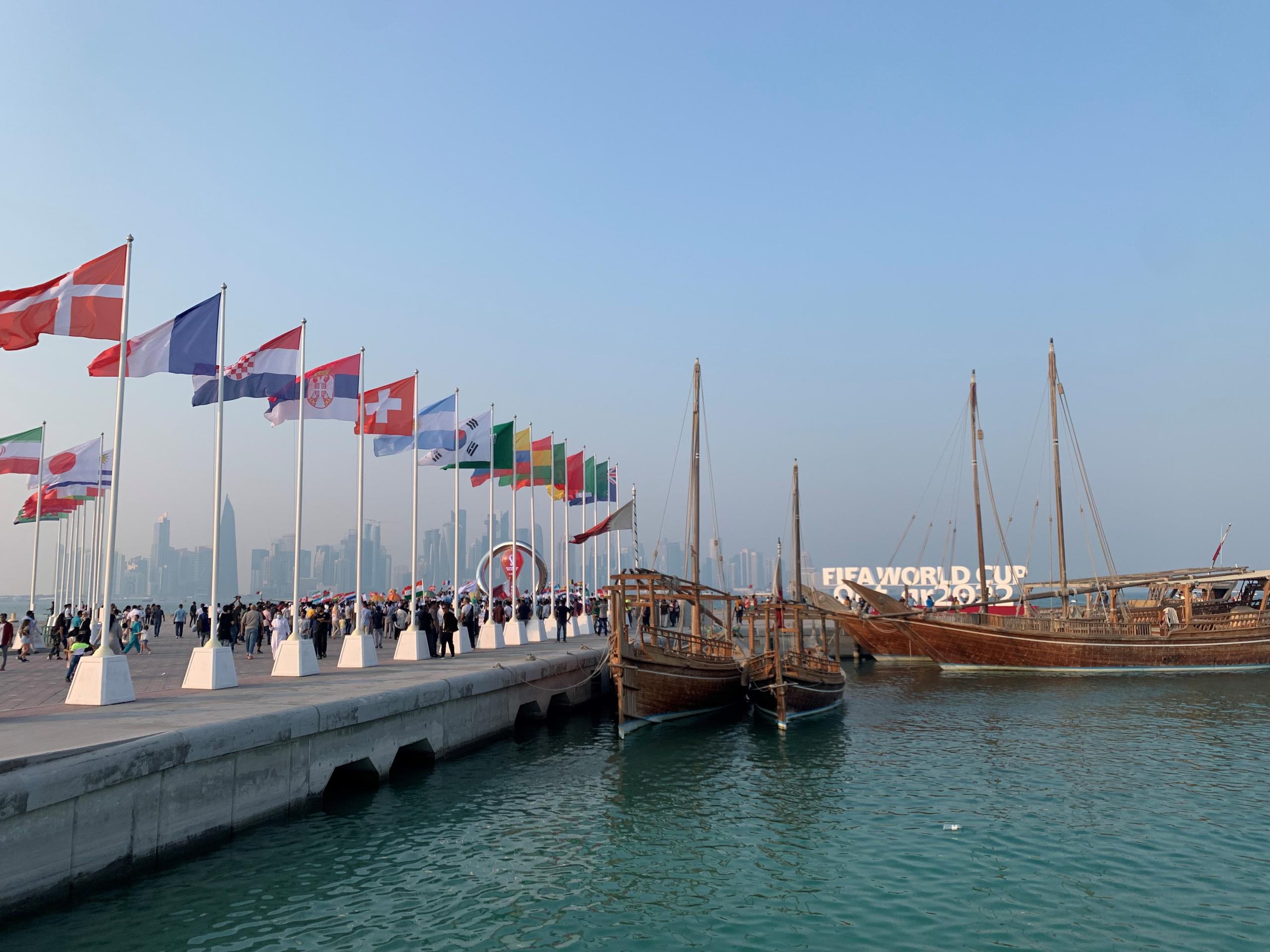
More
Countdown to the World Cup in Qatar: ‘Cows have been flown in’
Jessica Davis Plüss knows which other Swiss companies made (international) headlines in 2022.

More
Which Swiss companies made headlines in 2022?
Our resolution for 2023 is to continue offering you independent, in-depth and accurate reporting with a Swiss focus! Last year SWI swissinfo.ch joined the DG8 group of international public service media which aims to improve free access to information for people around the globe and fight against disinformation and hate speech.
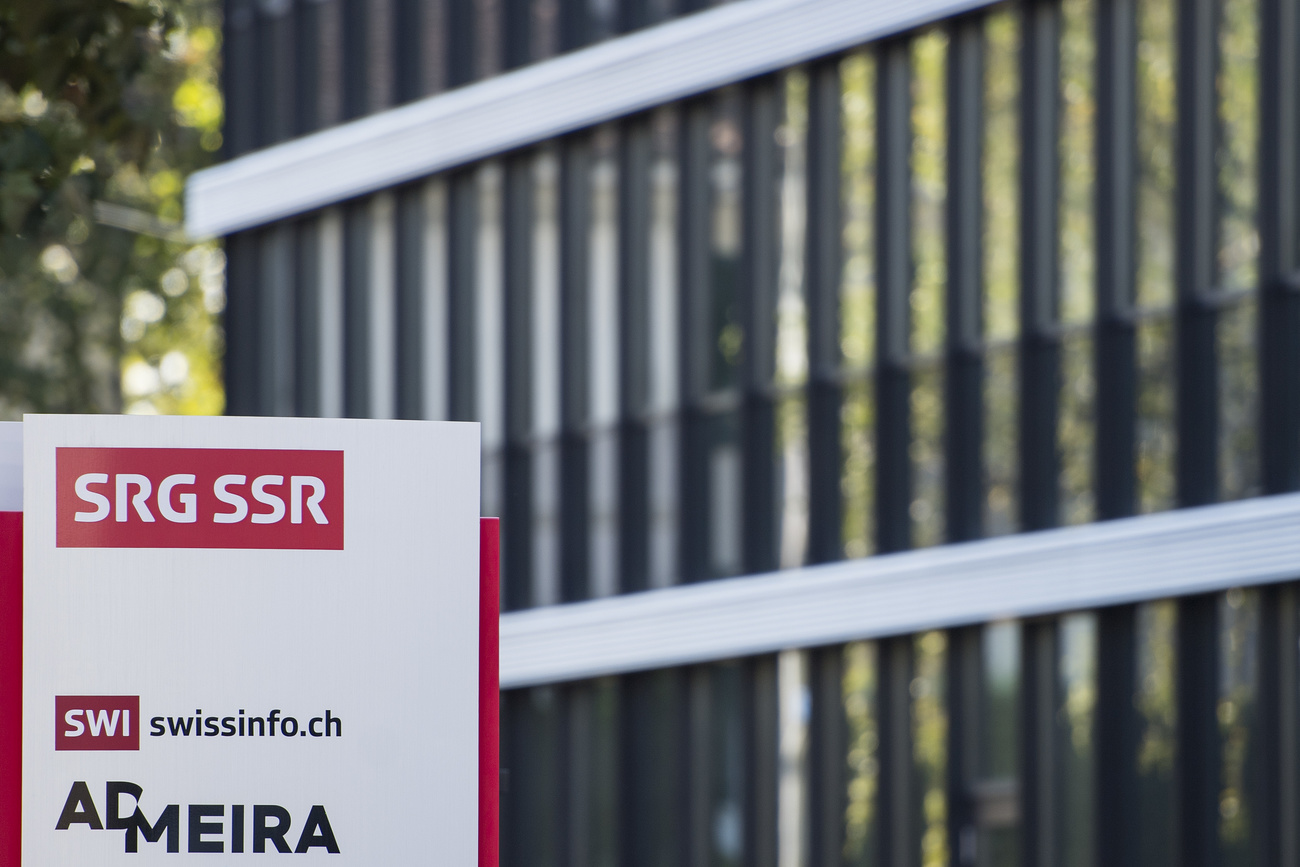
More
SWI swissinfo.ch joins DG7 international public media network
One last thing that is new: our location. In October 2022 we moved our offices from Bern’s Ostring to the building at Schwarztorstrasse 21, where where Swiss public radio, SRF, has its broadcasting studios. The move was duly celebrated with colleagues, politicians, civil servants, economists and officials from other institutions.
SWI swissinfo.ch and SRF in Bern under one roofExternal link (in German)
Translated from German by Billi Bierling

In compliance with the JTI standards
More: SWI swissinfo.ch certified by the Journalism Trust Initiative










You can find an overview of ongoing debates with our journalists here . Please join us!
If you want to start a conversation about a topic raised in this article or want to report factual errors, email us at english@swissinfo.ch.